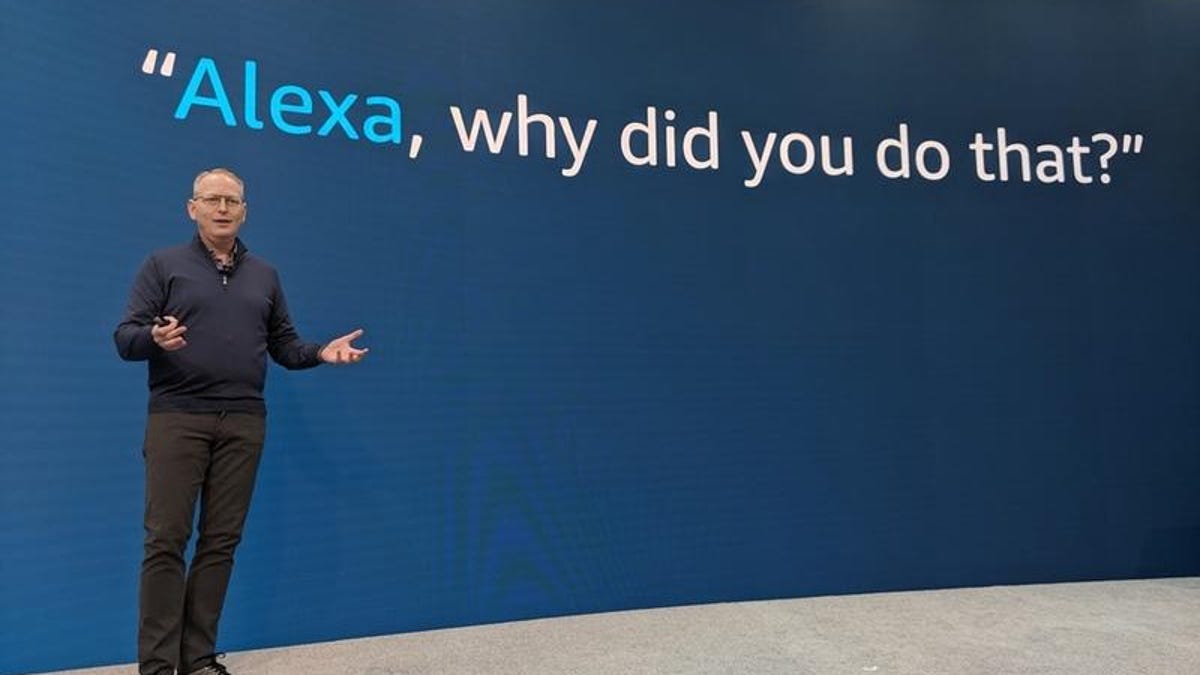 Why You Can Trust CNET
Why You Can Trust CNET Amazon Alexa adds new commands to tamp down privacy concerns
"Alexa, why did you do that?"

Amazon has added new Alexa privacy features.
Amazon on Wednesday said it's adding two new commands people can use to make sure they know what data the company's Alexa voice assistant is collecting. Now people can say, "Alexa, tell me what you heard" and ask, "Alexa, why did you do that?"
The "tell me what you heard" command lets people make sure they know what Alexa's listening to. The question "why did you do that" is intended to give people more information if the software does something they didn't intend, such as playing a song out of nowhere.
Amazon also said it'll let people delete Alexa voice recordings on a rolling 3-month or 18-month basis.
"We care about this," Dave Limp, Amazon's head of hardware, said during a launch event. "Privacy is absolutely foundational to everything we do in and around Alexa."
Amazon this year faced a backlash after news broke that human reviewers were sometimes listening to recordings of users' private conversations with Alexa. More stories followed showing that Apple, Google, Facebook and Microsoft were also using people to review audio snippets.
The practice is common in voice computing to improve digital assistants, and very few recordings are reviewed. Still, some customers felt uncomfortable with the process, particularly because the tech companies didn't clearly disclose the practice. Also, sometimes sensitive conversations were reviewed, such as doctor-patient discussions.
Amazon has made changes to its privacy settings and now lets users opt out of human reviews. Google and Apple have made similar changes.
Amazon has faced a handful of other privacy issues, too.
In May, children's advocates called on the US Federal Trade Commission to investigate the child-focused Echo Dot Kids Edition. The next month, Amazon was hit with two lawsuits that alleged the company failed to get children's consent when it records them using its voice assistant. Amazon says it requires parental consent and provides many privacy controls for parents. Also in May, CNET reported that Amazon kept transcripts of Alexa interactions even after people deleted the audio recordings. The company has since fixed this issue.



